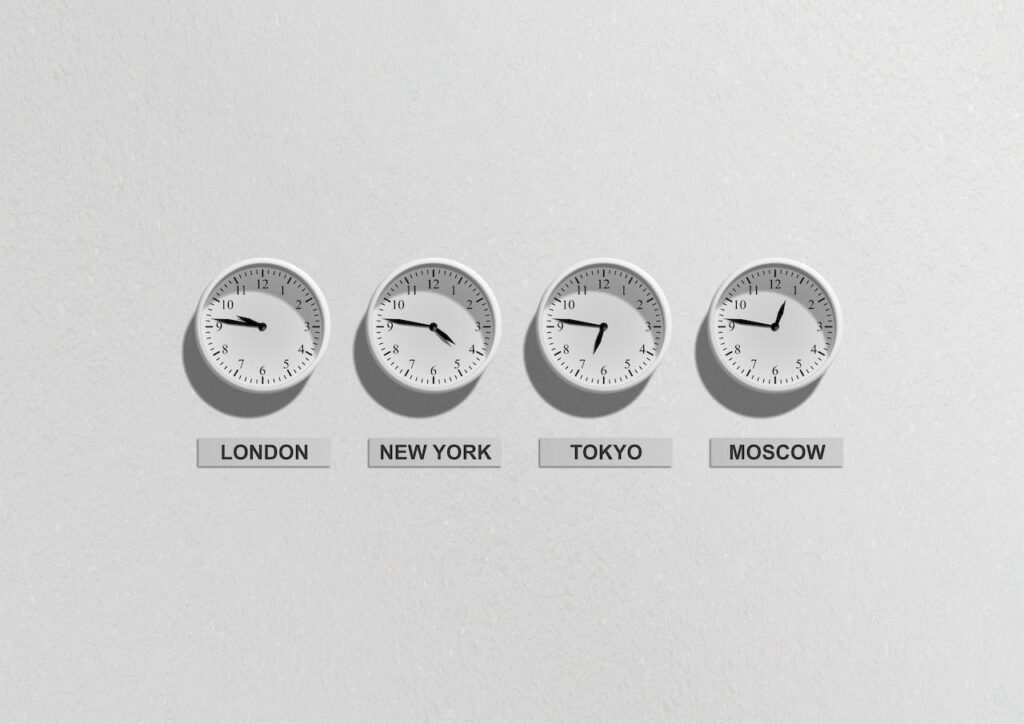Being productive has become a modern day mantra. But what does it mean to be productive? Are we talking about doing more in less time, achieving goals, or just keeping busy? The reality is that productivity is a multi-faceted concept that involves much more than simply checking off tasks from a to-do list.
It encompasses effectiveness, efficiency, quality, and a healthy work-life balance. Let’s explore seven ways to understand the true meaning of productivity.
Defining Productivity

When it comes to dissecting the meaning of productivity, it’s all about your ability to effectively complete tasks and meet objectives. It’s the ultimate measure of how well you can utilize your time, energy, and resources to generate the results you want.
The key to being a truly productive individual is not about being in a constant state of busyness, but rather, it lies in creating significant outcomes. This could mean delivering high-quality work, surpassing set targets, or successfully accomplishing a project.
The goal is to channel your efforts into actions that yield substantial and meaningful results.
Productivity and Time Management

Understanding the ins and outs of time management can significantly enhance your productivity. The ability to effectively schedule and prioritize tasks, while minimizing procrastination and distractions, can drastically optimize how your day unfolds.
By investing your time wisely, you are not merely working hard, but working in an efficient and organized manner. This approach can greatly improve the speed and quality of your work, consequently enhancing your overall productivity.
Keep in mind that effectively managing your time doesn’t necessarily mean cramming more tasks into your day. Instead, it’s about focusing on what truly matters, identifying the tasks that contribute most to your goals and dedicating quality time to complete them. Thus, time management, when practiced effectively, goes hand in hand with increased productivity.
Productivity and Efficiency

Understanding productivity demands an appreciation for efficiency. This core principle is the art of optimizing tasks to yield greater results with minimal resources. Efficiency is the key to mastering productivity—it’s about doing things correctly while productivity emphasizes doing the correct things.
The magic happens when these two intertwine, bringing about an increase in productivity by maximizing your abilities and resources to consistently deliver top-notch results.
Efficiency is crucial as it empowers us to streamline processes, eradicate unnecessary steps, and optimize our resources. It can be achieved through various methods such as automation, delegation, and process improvement. Whether it’s leveraging technology to automate repetitive tasks, delegating tasks to the right people, or revisiting and refining processes to eliminate waste, each strategy is designed to reduce the input required and amplify the output.
Remember, the concept of productivity and efficiency isn’t just limited to your professional life. It can be applied to all aspects of your life, from daily chores to personal projects. Imagine spending less time on mundane tasks and more on what brings you joy and fulfillment. Now that’s productive and efficient!
With efficiency in mind, productivity isn’t about pushing yourself to the limit. Instead, it’s about smart strategies and making the best use of your skills, time, and energy to generate high-quality outputs.
By enhancing your efficiency, you are not only becoming more productive but also establishing a path for growth, advancement, and ultimately, success.
Productivity and Work-Life Balance

Productivity isn’t synonymous with ceaseless work and never-ending hustle. It’s about creating harmony between professional responsibilities and personal interests. The constant tug of war between work demands and personal life often results in stress and exhaustion, adversely affecting our productivity.
Rather than glorifying the culture of overworking, true productivity recognizes the need for downtime and the importance of personal fulfillment. Ensuring regular breaks, pursuing hobbies, engaging with loved ones, and practicing self-care are vital elements of a productive lifestyle.
This equilibrium not only rejuvenates your mind and body, but it also encourages creative thinking and a fresh outlook on tasks at hand. In essence, maintaining a balanced work-life scenario is the cornerstone of sustainable productivity. After all, you’re at your most productive when you’re well-rested, happy, and motivated.
Thus, it’s essential to create and respect boundaries between work and personal life to truly excel at being productive.
Productivity and Personal Satisfaction

The sense of personal satisfaction plays a pivotal role in understanding productivity. If you find joy and contentment in your tasks, your productivity levels are likely to escalate. Enthusiasm for your work fuels dedication, keeps distractions at bay, and propels you towards your goals, all contributing to a productive workday. Productivity isn’t merely about accomplishing tasks, but rather achieving them with a sense of fulfillment and happiness.
When you’re satisfied with your work, it naturally fosters a positive work environment. This state of contentment motivates you to apply your best efforts, be resilient in the face of challenges, and consistently deliver quality results. When your work aligns with your passion and you derive a sense of satisfaction from it, it positively impacts your productivity. You are more likely to remain focused, commit to tasks, and make valuable contributions when you are content with what you are doing.
Contrarily, when you find no joy in your tasks, productivity may falter. Monotony and disinterest can lead to decreased efficiency, lack of motivation, and subpar results. Therefore, finding satisfaction in your work and maintaining a positive attitude towards your tasks is crucial for fostering productivity.
Remember, personal satisfaction isn’t limited to just work tasks, but extends to all areas of life. When you are satisfied in your personal life, it positively spills over to your professional life, enhancing your overall productivity. Thus, pursuing personal interests, hobbies, and maintaining healthy relationships all contribute to a satisfied and productive life.
In essence, personal satisfaction and productivity go hand in hand. Satisfaction propels productivity, and productivity in turn yields further satisfaction. They form a virtuous cycle, reinforcing and amplifying each other. Hence, productivity is as much about personal satisfaction as it is about efficiency and goal achievement.
Productivity and Goal Achievement

Being productive is inherently tied to the accomplishment of objectives. Setting clear and attainable targets provides purpose and direction, thereby enhancing your motivation to stay productive.
Goals offer a roadmap, allowing you to envision your desired outcomes and understand what steps you need to take to reach them. As a result, your tasks become purposeful, lending more significance to your work and stimulating your productivity.
When setting goals, it’s crucial to break them down into smaller, manageable tasks. This approach helps you maintain a steady focus and reduces the feeling of being overwhelmed. Every time you accomplish a mini-task, you are not only one step closer to your goal but also experience a boost in motivation, leading to a surge in productivity. Moreover, the achievement of these smaller tasks provides instant gratification, further enhancing your drive to remain productive.
In addition, it’s beneficial to incorporate deadlines into your goal-setting strategy. Deadlines instill a sense of urgency, fostering productivity by encouraging timely task completion. This way, you create a clear path and timeline towards your objective, thereby fostering productivity and keeping procrastination at bay.
The relationship between goal-setting and productivity is dynamic, as achieving your goals often requires a certain degree of productivity, while productivity, in turn, is driven by the pursuit of achieving goals.
Hence, understanding the interconnection between productivity and goal achievement can help you navigate your path towards success with efficiency and purpose. It provides the drive to take action and make the most of your abilities, making the road to success not only achievable but also enjoyable.
Productivity and Continuous Improvement

Understanding productivity isn’t a one-time process, but rather a dynamic journey of constant evolution and enhancement. It requires a mindset that welcomes learning, growth, and flexibility in adapting to new circumstances.
As you strive for continuous improvement, you’re actually embracing a path towards becoming more productive. The thirst for learning new skills, mastering innovative technologies, and exploring new methods can contribute immensely to amplifying your productivity.
This constant quest for improvement not only equips you with a competitive edge but also helps you accomplish tasks more efficiently and effectively. It’s essential to stay open-minded and curious about new ways to expedite and improve your processes.
For instance, the adoption of the latest technology can significantly cut down the time spent on repetitive tasks, thereby boosting your productivity. It’s also about being open to constructive feedback, willing to reassess your strategies, and ready to make necessary changes. Ultimately, the quest for continuous improvement provides a sturdy foundation for a productive mindset.
By fostering this pursuit, you’re not only enhancing your productivity but also paving the way for personal and professional growth.


